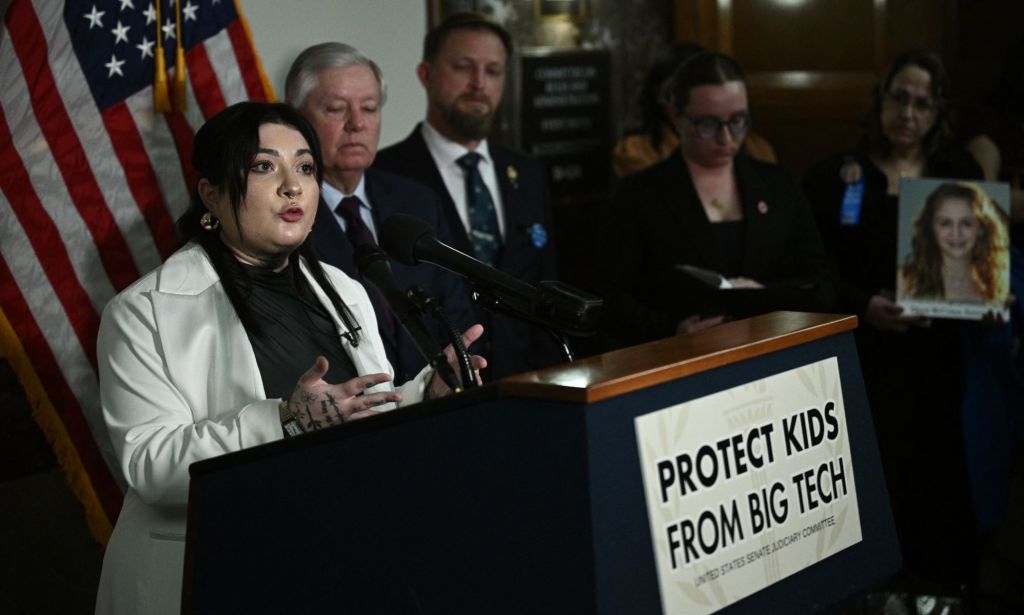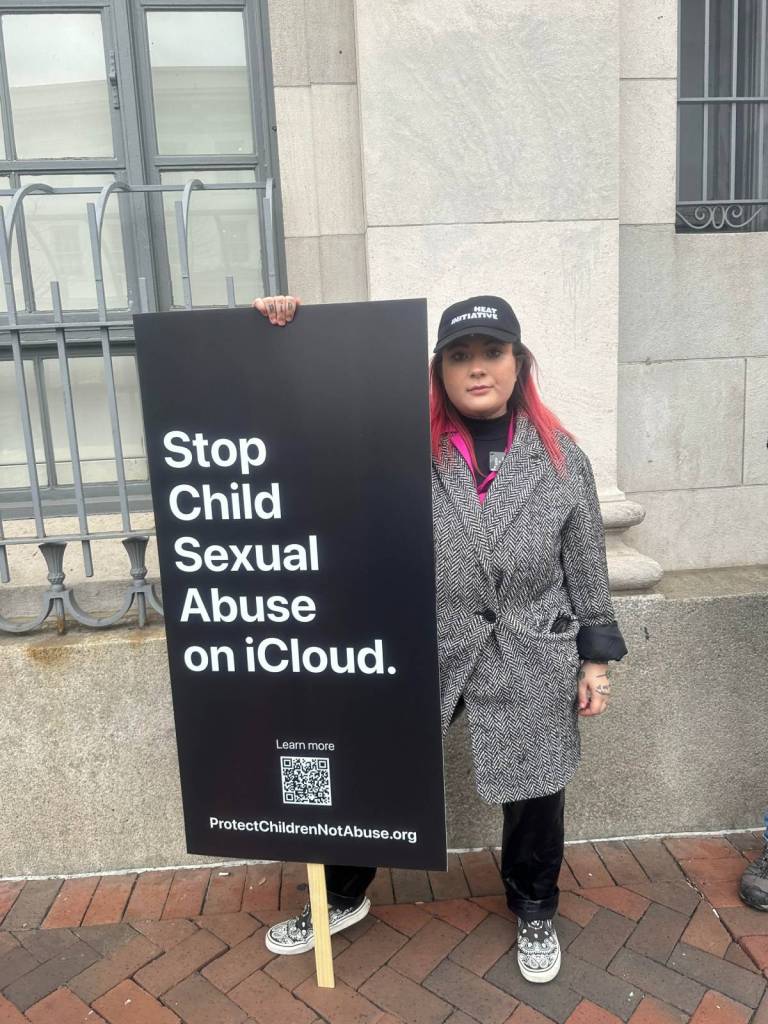Naked photos of me were shared online when I was 14 – tech firms must do more

[ad_1]
Leah Juliett was just 14 when someone posted naked pictures of the teenager on the internet.
Now, 27, Leah, who is non-binary and uses they/them pronouns, is trying to prevent the “same problem that led to the abuse” happening to other LGBTQ+ young people.
If you look up Leah’s name online, there are articles discussing their work fighting for LGBTQ+ rights, youth online safety and combating image-based sexual violence. They have spoken to US lawmakers and the White House about the impact that being the victim of child sexual abuse material (CSAM) and image-based sexual violence has had on their life.
“It’s still ever-present in my life and the lives of thousands of LGBTQ+ young people around the country and the world because of big tech,” they told PinkNews.
“This happened to me [more than] 10 years ago, when I was first groomed on Facebook Messenger into sending nude photos of myself to a boy who would later post them on the internet. I was never able to get justice in my case. I was never able to hold my abuser accountable.
“Ten years later we still have the same problem that led to [that] abuse, due to the lack of both accountability in the tech industry and the lack of legislation to protect young people online.”

Queer people face incidences of revenge porn far more often than their straight peers
Studies have found queer people are far more likely than their cisgender, straight counterparts to become victims of image-based sexual violence, such as revenge porn, and that anti-LGBTQ hate is rife on major social media platforms – including Facebook, Instagram, TikTok, YouTube and Twitter/X – while the quality of safeguarding queer users remains largely unsatisfactory.
Appearing before the US senate last month, Mark Zuckerberg, the chief executive of Meta, which owns Facebook, Instagram and WhatsApp, apologised for the “suffering” victims, as well as the families of children who were sexually exploited on social media platforms, had to endure.
Leah, who was present at the hearing, criticised Zuckerberg for not taking action sooner and for allowing the “abuse” against them to “spread on Facebook”.
They told PinkNews that CSAM and image-based sexual violence is an issue on Meta, Apple’s iCloud and “everywhere else that it’s proliferated” – and it’s “impacting queer and trans people disproportionately”.
In 2023, the Heat Initiative launched a campaign calling on Apple to take action against that proliferation, after the tech giant scrapped plans to scan for such material on users’ devices.
Leah joked that they’ll “tattoo a rotten apple” on their body if “that’s what it takes to get the message across”.
Their “evolution as an activist” brought them to this moment where they’re channelling their joy, “rage” and “inability to accept the status quo any longer” to direct policy change and hold tech companies to account.
“When I show up as a heavily tattooed, plus-size, queer, non-binary person, living loudly with mental illness in spaces that were not traditionally meant for me, that is an act of joy,” Leah said. “That is radical and life-saving, because I believe that you can’t be who you can’t see.
“Showing up radically, fearlessly, authentically as myself, painting words that I needed to hear when I was younger on my body, such as ‘Rest in peace shame’, ‘Protect trans kids’ and ‘I’m not ruined, I am real’ sends messages to myself, and people perceiving me, that I get to reclaim and convey how my body is perceived.
“That all ties back to why my activism has evolved to where it is now, why I’ve joined the Heat Initiative, why I’m taking on Apple and big tech, because this issue requires a major cultural shift from the political to the personal, and that includes both legislation change and tech accountability.”
‘The bill will protect young people from the abuse I endured, abuse that has grown and changed since then’
In recent years, various bills have been presented to protect people, especially children, on the internet. Among them is the Kids Online Safety Act (KOSA), which, among other things, aims to force tech companies to tackle illegal material and content that is harmful to children, conduct regular risk assessments and properly enforce age limits.
However, KOSA faced a crisis last year when the bill’s lead co-sponsor, Republican senator Marsha Blackburn, suggested it be used to protect minor[s] “from the transgender in our culture“.
Leah, who has been advocating for the legislation, acknowledged that LGBTQ+ people are “afraid” of KOSA and that Blackburn’s remarks made her a “dangerous person to the trans community”.

However, they remained firm in their support of the bill after techcrunch.com reported that several amendments appeared to have eased concerns voiced by the likes of GLAAD, The Human Rights Campaign and The Trevor Project.
“The bill will protect young people from the abuse which I endured, abuse that has grown and changed since [then],” Leah said.
“At the end of the day, I want queer and trans youth to know that there are queer and trans people in the rooms talking with the highest staffers in legislative offices, sharing the feedback we hear from our community.
“As a result, their concerns have impacted the law as it’s currently written. If it passes, it will be because of the tireless work of all of those young people who keep trying to get their voices heard.”
[ad_2]